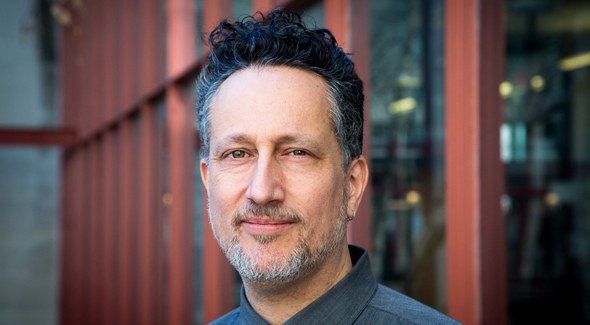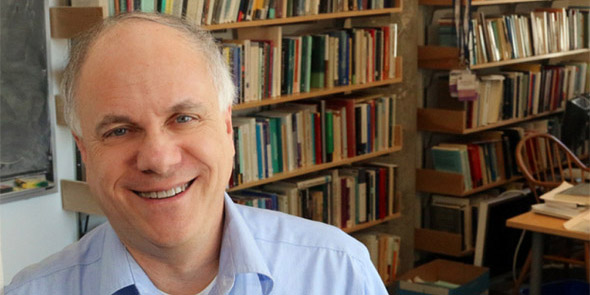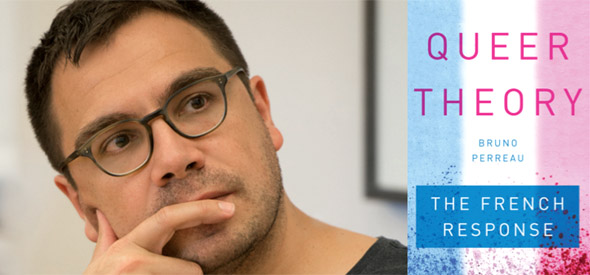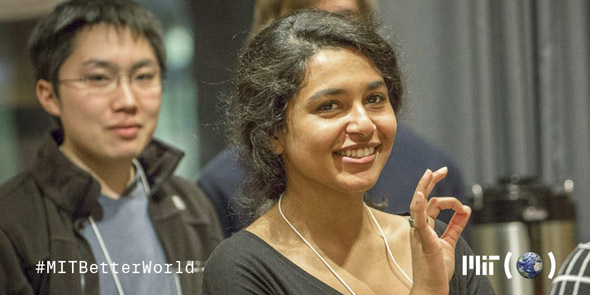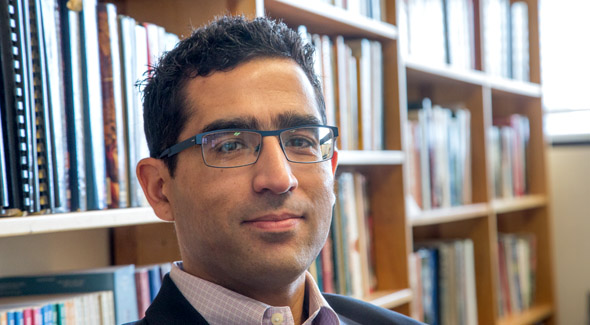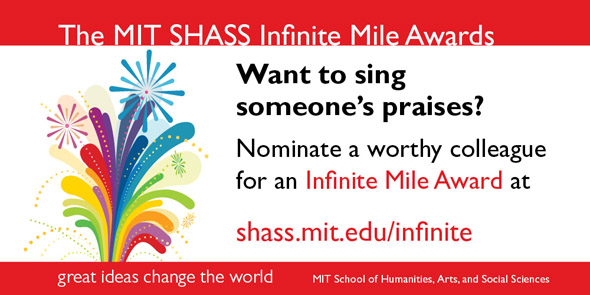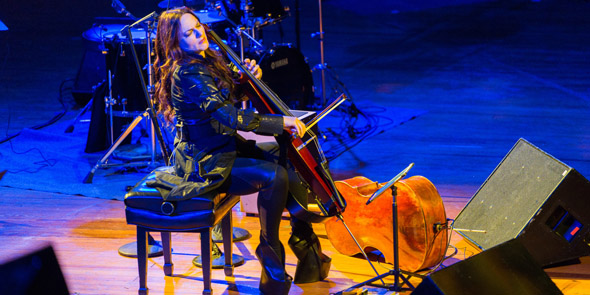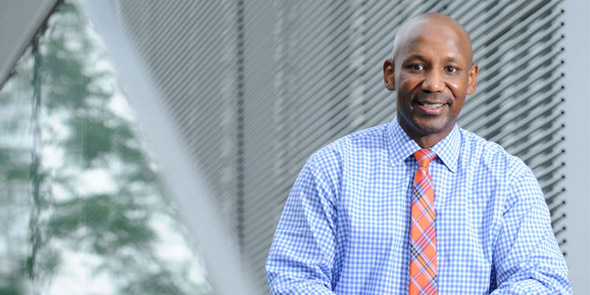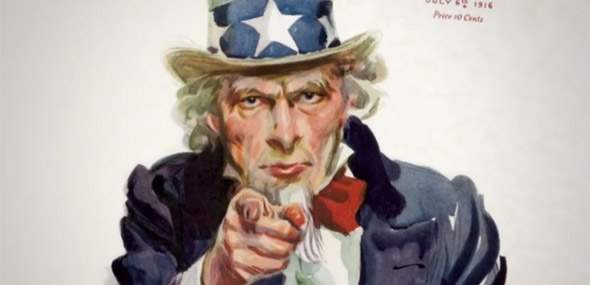Said and Done
March 2017
Published by the Office of the Dean
MIT School of Humanities, Arts, and Social Sciences

QUOTABLE
“One of the principal ways historians contribute to problem-solving work at MIT and elsewhere is by helping to identify what the real problem is in the first place. When we understand the roots of a problem, we have a much better chance of actually solving it."
— Malick Ghachem, Professor of History
HONORS AND AWARDS
PHILOSOPHY
Caspar Hare named a 2017 MacVicar Faculty Fellow
Upon receiving the award, Hare said, "I feel lucky to be teaching students with a natural affinity for philosophy...MIT undergraduates tend to be both fascinated by fundamental questions, and tremendously adept at rigorous thinking." The admiration is mutual: "Professor Hare’s patience and mindfulness in ensuring everyone’s complete and thorough understanding of questions at hand are unparalleled," reads one nomination from Hare's students.
Story by Elizabeth Durant at MIT News
ECONOMICS
Daron Acemoglu wins BBVA Foundation Frontiers of Knowledge Award
Acemoglu, the Elizabeth and James Killian Professor of Economics at MIT, has won the distinguished BBVA Foundation Frontiers of Knowledge Award for Economics, Finance, and Management, in honor of his prolific research that has helped reshape his discipline over the last two decades.
Story by Peter Dizikes at MIT News
SCIENCE, TECHNOLOGY, AND SOCIETY
Sherry Turkle receives USC Annenberg’s Everett M. Rogers Award
Turkle studies the effects on human relationships of digital technology, including the personal computer, social networks, mobile connectivity, and artificial intelligence.
Story | Sherry Turkle's website

L to R: Caspar Hare, Professor of Philosophy; Daron Acemoglu, Elizabeth and James Killian Professor of Economics; Sherry Turkle, Abby Rockefeller Mauzé Professor of the Social Studies of Science and Technology
ECONOMICS | LINGUISTICS
MIT named top university worldwide; and No. 1 in Economics and Linguistics
In addition, QS World University Rankings ranked MIT first in ten other subject rankings.
Story at MIT News
COMPARATIVE MEDIA STUDIES / WRITING
Junot Díaz inducted into American Academy of Arts and Letters
The American Academy of Arts and Letters has announced 14 new inductees, including Junot Díaz, a Pulitizer prize-winning author and the Rudge and Nancy Allen Professor of Writing at MIT.
More | Junot Díaz's website
COMPARATIVE MEDIA STUDIES / WRITING
Vivek Bald awarded Levitan Prize in the Humanities + Whiting Fellowship
The Levitan research grant will support Bald's work on a film and a website documenting South Asian Muslims who immigrated to the United States between the 1890s and 1940s. Bald has also received a Whiting Public Engagement Fellowship award for work on the same project.
Story by SHASS Communications
"Over the last 15 years, Muslim and South Asian Americans have been told that they are outsiders and newcomers to the United States… One of the central goals of the Bengali Harlem project from the beginning — and this has become more important over time — is to demonstrate the longstanding presence of Muslims in the U.S."
— Vivek Bald, Associate Professor of Comparative Media Studies
COMPARATIVE MEDIA STUDIES / WRITING
Alan Lightman receives inaugural Humanism in Literature Award
The Humanist Hub has named Lightman its first ever awardee for Humanism through Literature.
Story by SHASS Communications
EECS + COMPARATIVE MEDIA STUDIES
MIT senior Lilly Chin wins the Jeopardy! College Tournament of Champions
With wide-ranging knowledge, Chin, an Engineering major with a minor in Comparative Media Studies, won the $100K grand prize. Chin also won hearts with her final answer: "Who is the spiciest memelord?" — a shout-out to her MIT friends and fans.
Story at MIT News
LINGUISTICS
David Pesetsky honored by MIT Linguistics alums and colleagues
More than 100 faculty colleagues, current and former students, and guests gathered at the Stata Center for a workshop organized as a tribute to David Pesetsky on his birthday. Pesetsky is the Ferrari P. Ward Professor of Modern Languages and Linguistics and head of MIT's Department of Linguistics and Philosophy.
Story by SHASS Communications
"You have contributed to each and every one of us — with dedication and generosity and enormous linguistic talent — to our thinking, to our work, to our attitude toward doing science in general. Thank you."
— Sabine Iatridou, MIT Professor of Linguistics
RESEARCH
PHILOSOPHY
What we’re doing when we try to live our lives well | Tamar Schapiro
Schapiro studies how we blend reason and emotion while refining our adult selves. Most of the undergraduate students she works with at MIT are majoring in engineering or science fields, and, as Schapiro observes, “Sometimes that makes them hungrier for philosophy. I think all of them are aware that whatever they achieve as an engineer or scientist, they still need values to guide them.”
Story by Peter Dizikes at MIT News
ECONOMICS
America’s two-track economy | Peter Temin
Temin's new book examines causes for the decline of the U.S. middle class—citing the reduction in unions and resulting diminished bargaining power of workers; racial injustices; and high incarceration rates—and suggests remedies, chief among them, renewed investment in public schools and public universities.
Story by Peter Dizikes at MIT News
LINGUISTICS
Global agreements | Shigeru Miyagawa
In his new book, Miyagawa expands the horizons of language analysis. In Agreement Beyond Phi (MIT Press, 2017) Miyagaw explores some of the unexpected structural similarities among languages, and proposes orienting the search for universal linguistic principles around a greater diversity of languages.
Story by Peter Dizikes at MIT News
GLOBAL STUDIES AND LANGUAGES
A new fight with old battle lines | Bruno Perreau
Perreau's new book explores what France’s LGBTQ rights battle says about identity and belonging. In 2013, the French government passed a law giving gay couples the right to marry and adopt children. But why did this measure — enacted well after similar laws in other European countries had already passed — stir so much controversy in a country often regarded as a bastion of personal liberty?
Story by Peter Dizikes at MIT News
"Perreau observes that France’s ideology of universalism has helped it drive toward equality in some respects, but the country has had difficulty accommodating social differences in other regards. That's because 'France defines its identity through the logic of unity,' says Perreau."
HEALTH ECONOMICS
Measuring diagnostic intensity | Adam Berinsky
New study maps U.S. regions where patients appear more ill than they are.
Story at MIT News
POLITICAL SCIENCE
The power of perceptions | Adam Berinsky
Berinsky's study shows how information sources affect voters. For all the fact-checking and objective reporting produced by major media outlets, U.S. voters are more likely to believe information when it comes from a candidate those voters support.
Story at MIT News
HEALTH ECONOMICS
Entry ban could cause doctor shortages | Immigrant Doctors Project
A report by graduate students in health and economics, including MIT Economics PhD candidate Michael Stepner, estimates that "14 million doctors' appointments are provided each year by physicians from Iran, Libya, Somalia, Sudan, Syria and Yemen — the six countries targeted by the recent executive order."
Immigrant Doctors Project website | Story at WBUR | Story at NBC
Map showing where immigrant doctors from the six banned countries are currently practicing in the United States; from the Immigrant Doctors Project website.
NEWS
SHASS + SLOAN
Two MIT schools launch the non-partisan Mens et Manus America Initiative
Mens et Manus America, an initiative focused on examining current social, political, and economic issues in the U.S., drew more than 200 attendees for its inaugural event on February 16 — a screening of "Exit Zero," a documentary on deindustrialization. At the next event, on March 23, acclaimed sociologist Arlie Hochschild, author of Strangers in Their Own Land, will speak.
Mens et Manus America webpage | Launch Story | RSVP for March 23 event + lunch
THEATER ARTS
Weaving through the action | A new home for MIT Theater
MIT Theater Arts will soon have improved facilities for performance and design under one roof in a renovated, 25,000 sq ft. building on Vassar Street. The space includes a two-story, 180-seat, multimedia-equipped venue that can be reconfigured easily, as well as a rehearsal studio, dressing rooms, and set and costume makerspaces. MIT Spectrum's Nicole Estvanik Taylor spoke about the new building, and MIT's approach to theater-making, with Jay Scheib, Head of MIT Music and Theater Arts, and Sara Brown, Director of Design.
Story by Nicole Estvanik Taylor at MIT Spectrum
MIT SHASS
Video: "Essential," on MIT's Humanities, Arts, and Social Sciences
Every MIT undergraduate studies the humanities, arts, and social sciences, and the School's research is essential to the Institute's ability to make a better world. Find out why in this short video featuring Dean Nobles, MIT faculty and students — and Winston Churchill!
Watch video
GLOBAL STUDIES AND LANGUAGES
3 Questions: Emma Teng on “China Comes to Tech”
A new exhibit delves into the history of Chinese students at MIT. “I’m hoping the exhibit will inspire people to reflect on what international students contribute to MIT and to America at large,” says Teng. “One of the most powerful lessons that I learned is that not only did many Chinese leaders in science and technology in China get their educations here at MIT, but they also … worked as cultural ambassadors.”
Interview at MIT News | Emma Teng's website
POVERTY ACTION LAB
Government leaders gather at MIT to advance evidence-based policymaking
State and local policymakers joined with leading researchers to share experiences overcoming challenges to evaluating government programs.
Story at MIT News
MUSIC
Jacob Collier harmonizes with MIT
For his MIT residency, the Grammy-winning artist collaborates with over 150 student musicians to stage the monumental concert, “Imagination Off the Charts.”
Story by Sharon Lacey
FEATURE | THE HUMAN FACTOR SERIES
Malick Ghachem: How history helps us solve today's issues
Ghachem is an attorney and a professor of history who explores questions of slavery and abolition, criminal law, and constitutional history. SHASS Communications asked him to share his thoughts on how history can help people craft more effective public policies for today's world.
Story by SHASS Communications
“It’s important to do the unglamorous, nitty-gritty, heavily historical work of understanding the local and the particular. A sustained patience for understanding the local in historical contexts is itself a tool of public policy — a way of seeing and talking about the world, and (if wielded correctly) an instrument of power and justice."
— Malick Ghachem, Professor of History
FORTHCOMING EVENTS
SHASS INFINITE MILE AWARDS 2017
Nominate a worthy SHASS colleague by March 27, 2017.
The awards ceremony and luncheon will be held on Monday, May 1, 12pm.
Online nomination form
IN THE MEDIA
MIT SHASS In the Media
For the complete list of recent media stories about SHASS research and faculty, visit:
In the Media Section | March 2017
ECONOMICS: LOOKING AHEAD
What everyone needs to know about the economy in 2017 | David Autor
Ford Professor of Economics David Autor answered questions about economic issues in a Quora forum online, providing expert insight into some of 2017’s most pressing issues.
Discussion on Forbes / Quora Forum | David Autor's website
POLITICAL SCIENCE
Human willingness to accept false information | Adam Berinsky
In this article, Adam Berinsky, a political science professor at MIT, says the spread of fake facts is “uncharted territory” in American politics. “I never thought I would live in a time when a candidate would say things that are demonstrably false, where you can roll a tape of him saying one thing, like that China made up global warming, and he still denies having said it. That isn’t the typical politician, shading the truth.”
Story at Salon | Adam Berinsky's website
HEALTH ECONOMICS
An ACA architect analyzes the new Republican plan | Jonathan Gruber
Morning edition host Steve Inskeep, and WGBH correspondent Jim Braude interviewed economist Jonathan Gruber on air, discussing his experience working on healthcare legislation in light of the new Republican plan.
Story at NPR | Related Story at WGBH | Jonathan Gruber's website
ECONOMICS AND MARRIAGE
When factory jobs vanish, men become less marriageable | David Autor
Economics Professor David Autor and a team of co-authors from other universities recently found that as men's economic prospects declined, there were fewer marriages in their communities due to the fact that “manufacturing jobs are a fulcrum on which traditional work and family arrangements rest.”
Story at The Atlantic | Related stories at Bloomberg and The Washington Post
ECONOMICS AND TRADE
Trade deficit is a poor measuring stick for the economy
The Washington Post quotes MIT economist David Autor in its analysis of Trump’s trade philosophy. As Autor explains, “You have to understand the fundamental reason for trade is not because you win by exporting and lose by importing — it’s that there are things that other countries make that you want to buy, and things you make that they want to buy.”
Story at the Washington Post | Related Story at the WaPo
LABOR ECONOMICS
One reason workers are struggling even when companies are doing well | David Autor
A new study co-authored by MIT economist David Autor studied 700 industries from 1982–2012 and found that “the more concentrated an industry had become, the larger the decline in labor’s share.”
Story at The Atlantic | Related stories at Bloomberg News and The New York Times
THEATER ARTS
“Dolphins and Sharks” debuts at Labyrinth | Charlotte Braithwaite
Director Charlotte Brathwaite, theater professor at MIT, has chosen a Harlem copy shop as the setting for James Anthony Tyler’s new play about power dynamics among the powerless. The Village Voice says “Dolphins and Sharks” “owes much of its power to Brathwaite's stellar production.”
Review at The Village Voice | Brathwaite's website
MUSIC | MIT CAST
Ziporyn, Beiser, Ambient Orchestra perform concerto based on Bowie's Blackstar
The Terry and Rick Stone Concert featured CAST Faculty Director Evan Ziporyn's adaptation of Blackstar, David Bowie’s last album, performed by Maya Beiser, the Mellon Distinguished Visiting Artist, with the Ambient Orchestra. The SRO program also included a new arrangement of Erik Satie’s 80 Gymnopedies and Ziporyn’s Frog’s Eye.
Story at WBUR | Related Story at The Boston Globe
“It turns out the combination of cutting edge classical music and the work of an arty rock hero can sound pretty sweet — in fact, Beiser says her inspiration to start playing the cello was her desire to sound like Janis Joplin. And Ziporyn says the “Blackstar” exercise underlines for him that musicians — any musicians — should be able to play together, no matter what the style.”
— Jeremy Goodwin, WBUR
THEATER ARTS
Charlotte Brathwaite directs oratorio commemorating Virginia Tech shootings
Of the work, which explores gun violence, Brathwaite says, “It’s literally the voices of the community speaking out.”
Story at NPR
THEATER ARTS
Jay Scheib directs “Bat, The Musical” in London and Manchester to rave reviews
Originally written as a musical, “Bat Out Of Hell” went on to become one of the most iconic albums of all time. Forty years later, Jim Steinman’s tale of love, rebellion, and rock & roll comes to the stage, directed by Jay Scheib, Head of MIT Music and Theater Art. "This is a truly staggering piece of musical theatre, which breaks new boundaries in its staging, choreography and concept on an epic scale...a daring and provocative work sharply directed by Jay Schieb," says one of many rave reviews.
Review at the Manchester Evening News | Jay Scheib's website | Photographs + About
SCIENCE WRITING
How a chain of scientific discovery leads to a history of the universe | Marcia Bartusiak
Professor of science writing, Marcia Bartusiak reviews intellectual historian Peter Watson’s new book, Convergence: The Idea at the Heart of Science. Bartusiak states the book shows “how linking one science with another could amplify understanding … to identify one … interlocking coherent story: the history of the universe.”
Story at The Washington Post | Marcia Bartusiak's website
EDUCATION ECONOMICS
DeVos gets bad news on school vouchers
Several studies, including one by MIT economics professor Parag Pathak, have recently concluded that participation in a Louisiana school voucher program “substantially reduces academic achievement.”
Story at the Los Angeles Times | Parag Pathak's website
LINGUISTICS
Haiti’s “linguistic apartheid” violates children’s rights, hampers development | Michel DeGraff
In this commentary, MIT linguistic scholar DeGraff describes how Haiti’s educational system routinely discriminates against those who don’t speak French—which is the vast majority of the population.
Story at Open Democracy
HISTORY
Confronting academia’s ties to slavery
MIT historian Craig Steven Wilder joined Harvard University President Drew Gilpin Faust, journalist Ta-Nehisi Coates, and other speakers at a conference on academia’s ties to slavery. Wilder said that schools used to worry such discussions “would somehow tarnish our gates,” but that “In fact, they opened them.”
Story at The New York Times | Bound by History Project
HISTORY
American higher education and slavery | Craig Steven Wilder
In the 2006, Brown University published a report detailing its founders’ and early benefactors’ involvement in slavery. A resounding silence followed, which set in motion History Professor Craig Steven Wilder’s research for the book Ebony and Ivy: Race, Slavery, and the Troubled History of Higher Education.
Story at The Chronicle of Higher Education | Craig Steven Wilder's website
How MIT historian Craig Steven Wilder became “a one-man truth-and-reconciliation commission on colleges and slavery”
— The Chronicle of Higher Education
SCHOOL EFFECTIVENESS AND INEQUALITY INITIATIVE
Boston charter schools see record-breaking spike in applications
A study by MIT’s SEII showed that Boston’s secondary-school student applicants applied to more charter schools this year than in years past.
Story at The Boston Globe | SEII website
SCIENCE, TECHNOLOGY, AND SOCIETY
Our hallways are too quiet | Deborah K. Fitzgerald
All too quiet on the academic front? MIT historian Fitzgerald writes on the value of more in-person community on campuses in an era of when working remotely has become common.
Commentary at The Chronicle of Higher Education | Fitzgerald's webpage
POLITICAL SCIENCE
China’s nuclear missile policy put under strain by U.S. Plan
M.Taylor Fravel, Associate Professor of Political Science in the Security Studies Program at MIT, commented tby email Wednesday that if the U.S. expands its nuclear forces as President Trump suggests, “China may conclude that it needs to accelerate the pace of its nuclear force,” as well, in order to “deter a first strike.”
Story at CNBC | M. Taylor Fravel's website
POLITICAL SCIENCE
North Korea’s official story on Kim Jong Nam’s death
An official story published by state-controlled Korean Central News Agency claims that Kim Jong Nam, half-brother to North Korean leader Kim Jong Un, died of a heart attack — not murder. Richard Samuels, director of the Center for International Studies at MIT SHASS, analyzes the announcement.
Story at the Wall Street Journal | Richard Samuels website
HISTORY
The leak that helped push America into WWI
Following the leak to the press of the now-famous Zimmermann memo, anti-interventionists tried to expose the memo as a fake. History professor Christopher Capozzola, author of Uncle Sam Wants You: World War I and the Making of the Modern American Citizen, tells the history of those early “fake news” accusations.
Story at The Atlantic | Christopher Cappozolla's website
HISTORY
Christopher Cappozolla featured in PBS/The American Experience series on WWI
On April 10–12, PBS will present a 3-night, 6-hour documentary about WWI in conjunction with the centennial of America's entry into the war. MIT historian Cappozolla is prominently featured in the film, which explores how World War I changed America and the world.
Watch the trailer
STAY IN TOUCH
SHASS stories on MIT News
Bookmark this page
Social media
Facebook | Twitter
Publications Directory
Online portal to all MIT-SHASS publications
MIT Campaign for a Better World
Story | Join Us
Said and Done is published by the Office of the Dean
MIT School of Humanities, Arts, and Social Sciences
Editor and Designer: Emily Hiestand, Director, SHASS Communications
Publication Associates: Daniel Evans Pritchard and Sarah Goodman, SHASS Communications
Published March 16, 2017
About the MIT School of Humanities, Arts, and Social Sciences
MIT champions the power of STEM + SHASS for research and for educating great engineers, scientists, scholars, and citizens.
Making a better world — Generating solutions for the great challenges of our age requires both advanced technical and scientific knowledge and a deep understanding of the world's human complexities. MIT-SHASS researches and advances the cultural, political, and economic dimensions of innovation — the broad range of human realities, from deeply-felt cultural traditions to building codes to political tensions, in which science and technology issues are embedded.
Excellence — In 2015, MIT's Social Science disciplines were ranked first in the world, and MIT's Humanities and Arts disciplines were ranked among the top three worldwide.
Research with a global impact — The MIT-SHASS research portfolio is vast, including anthropology, comparative media studies, economics, history, international studies, languages, linguistics, literature, music and theater arts, political science, philosophy, security studies, and writing, including science writing.
Education that empowers — The School teaches every MIT undergraduate, empowering students with cultural and historical perspectives, and critical thinking and communication skills — to help them serve the world wisely and well. The School's seven graduate programs are all recognized as among the finest in the world.
Cultivating leaders — SHASS has a central role in international education at MIT, and in preparing students for leadership at home and on international teams. Through all their SHASS coursework, and in MISTI, the School's pioneering applied international education program, MIT students learn how to work, collaborate, and thrive in cultures around the globe.
